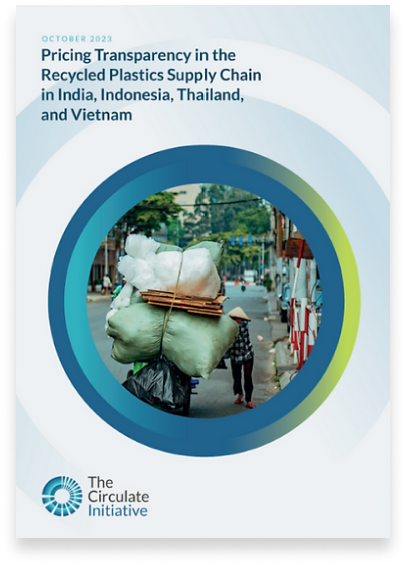

Pricing Transparency in the Recycled Plastics Supply Chain in India, Indonesia, Thailand, and Viet Nam
The plastics recycling ecosystem in South and Southeast Asia is highly fragmented, with a mix of formal and informal actors, leading to a lack of transparency in the economics of plastic recovery and recycling.
This report seeks to shed light on how pricing transparency can unlock demand and support stakeholders across the value chain to better understand the market opportunity and make more informed decisions. It also examines how various policies, such as Extended Producer Responsibility (EPR), the implementation of a Deposit Return System (DRS), and taxes on virgin polymers, for example, can impact recycling output, enabling stakeholders in the recycled plastics supply chains to capitalize on the tailwinds provided by global efforts to tackle plastic pollution.
Key findings from this report include:
- A lack of alignment in price points between supply chain actors indicates a lack of pricing transparency, which could distort market indicators on the pricing of material.
- Significant variation in prices among the same actors adds to a complex supply chain for material quality, consistency, and prices.
- An imbalance in the distribution of the total gains from trade among supply chain actors hinders improvements in market efficiency.
- Supply chains require direct interventions to become more efficient and develop as conventional markets in which all value chain actors can add value and be profitable.
- The impact of policy interventions in improving pricing transparency varies by country

Read Report
*By clicking the "Download" button, you are agreeing to The Circulate Initiative’s Terms of Use and Privacy Policy.